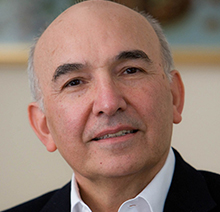Economic consequences of Covid-19: a counterfactual multi-country analysis
The Covid-19 pandemic poses formidable challenges to policy-makers and to the empirical analysis of its effects within the interconnected global economy. This column quantifies the impact along several dimensions, showing that the global recession will be long lasting, with no countries escaping regardless of their mitigation strategies. The findings call for a coordinated multi-country policy response.
When is debt a drag on economic growth?
Is there a tipping point for public indebtedness beyond which growth drops off significantly; and does a build-up of public debt slow the economy in the long run? This column reports the results of an empirical analysis of these questions for 40 advanced and developing economies over nearly half a century.


